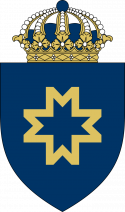Politics of Sedunn (Pacifica)
 | |
| Polity type | Unitary parliamentary republic |
|---|---|
| Constitution | Basic laws |
| Legislative branch | |
| Name | Mannared |
| Type | Unicameral |
| Meeting place | People's Hall |
| Presiding officer | Hevv Gjieramm, Speaker of the Parliament |
| Executive branch | |
| Head of State and Government | |
| Title | Dellm ("king"/"queen") |
| Currently | Vimmru II |
| Appointer | Speaker of the Parliament |
| Cabinet | |
| Name | Government of Sedunn |
| Current cabinet | Second Vimmru cabinet |
| Leader | King/Queen |
| Deputy leader | Minister of Foreign Affairs |
| Appointer | King/Queen |
| Headquarters | Greater Grovne Palace |
| Ministries | xx |
| Judicial branch | |
| Name | Judicial system of Sedunn |
| Courts | Courts of Sedunn |
| Supreme Court | |
| Chief judge | Ilva Tripallu |
| Seat | Grovne |
three branches.. system... supreme executive authority of while the Sedunnic parliament has the legislative authority and the Sedunnic system of courts has judicial authority
History
main:political history of sedunn
Executive authority
Government
The Government of Sedunn (Sedunnic: Sedunnejj Dommasa) is the national cabinet and the supreme executive authority of Sedunn.
Organisation and formation of the government
The Government operates as a collegial body with collective responsibility and consists of the King/Queen - appointed and dismissed by the Speaker of the Parliament (following a vote in the Parliament) - and the ministers of the cabinet (Sedunnic: karelilkumiblē). The Cabinet is appointed and dismissed at the sole discretion of the King. The Government is responsible for its actions to the Parliament. Individual ministers are not directly responsible for the performance of the agencies within their portfolio. The director-generals and other heads of government agencies report directly to the Government as a whole; individual ministers cannot intervene in individual cases in matters that are handled by the individual agencies, unless otherwise specifically provided for in law.
Ministries
The ministries are relatively small and merely policy-making organizations, allowed to monitor the agencies and preparing decision and policy papers for the government as a collective body to decide upon. There are no fixed ministries according to law, rather, the incumbent King can chose which ministries to have, in reality however, many ministries are de facto permanent by tradition.